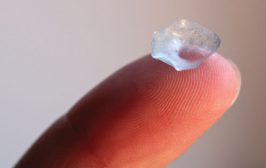-
Summer Savings: Save 20% On LASIK , Find More
*Must mention this promotion and be treated in August of 2024 to qualify. 20% off standard price of Wavelight procedure. Cannot be combined with any other offers.
- Home >
- Lasik Resources >
- Vision Health & Eye Care Tips >
- Eye Health & Your Diet
Eye Health & Your Diet
What you use to fuel your body defines how it will perform. While fads for special diet and exercise regimens come and go, the bedrock of proper health care remains nutrition. While this applies to every facet of your well-being, it is especially critical to the health of your eyes.
Vitamins, Minerals and Where to Find Them
Vitamins and minerals important to eye health include:
1) Vitamin C
2) Vitamin E
3) Lutein
4) Zeaxanthin
5) Beta-carotene
6) Zinc
7) Omega-3 fatty acids
Adequate amounts of these vital nutrients help prevent macular degeneration, cataracts, retinopathy and other eye diseases. (Read our Top Seven Super Foods for Your Eye Health post for additional information.)
Experts agree that a healthy diet with balanced and varied nutrition will work to provide these important nutrients and keep the eyes and the body healthy and functioning as well as possible.
Here’s a short list of foods to focus on. (Pun intended!)
1) Leafy greens like spinach and kale
2) Vegetables like peppers, squash, broccoli and carrots
3) Oily fish like salmon and tuna
4) Protein sources like nuts, beans, soy and eggs
5) Fruit like citrus and berries
An Ounce of Prevention…
Good nutrition not only keeps eyes healthy — it also helps prevent the onset of diseases and conditions that can damage your eyes. Diabetes is one example. A healthy diet can lower the risk of developing Type 2 diabetes, therefore avoiding the leading cause of blindness in adults. Another example is high blood pressure, which can damage blood vessels in the eyes and throughout the entire body.
Regular exercise provides benefits that the best nutrition cannot, such as maintaining bone strength and cardiovascular health. So, in addition to working to include varied healthy food sources every day, it makes sense to make exercise as easy as possible to fit in to each day. One way to do this is to seek out cardiovascular and strength workouts that are convenient and enjoyable. Another is to schedule them into the day at times when energy is highest. Also, consider how to make exercise flow seamlessly into your routine. Perhaps it’s as simple as packing your gym bag each evening to grab during the morning rush.
Whatever choices you make to add healthy nutrition and exercise regular, enjoyable parts of your daily life — your eyes will thank you!
YOU MIGHT ALSO LIKE...
-
City Match
Athens, Ohio
-
City Match
Lewis Center, Ohio
-
City Match
Delaware, Ohio
-
City Match
Columbus, Ohio
-
City Match
Columbus, Ohio
-
City Match
Indianapolis, Indiana
-
City Match
Indianapolis, Indiana
-
City Match
Indianapolis, Indiana
-
City Match
Indianapolis, Indiana
-
City Match
Indianapolis, Indiana
-
City Match
Indianapolis, Indiana
-
City Match
Las Vegas, Nevada
-
City Match
Houston, Texas
-
City Match
Eau Claire, Wisconsin
-
City Match
Oshkosh, Wisconsin
-
City Match
Kenosha, Wisconsin
-
City Match
Indianapolis, Indiana
-
City Match
Indianapolis, Indiana
-
City Match
Vancouver, Washington
-
City Match
Boulder , Colorado
-
City Match
Aurora , Colorado
-
City Match
Colorado Springs, Colorado
-
City Match
Santa Fe, New Mexico
-
City Match
Gainesville, Florida
-
City Match
St. Augustine, Florida
-
City Match
Evanston, Illinois
-
City Match
Greenwood , Indiana
-
City Match
Waco, Texas
-
City Match
Arlington, Texas
-
City Match
Loudoun County, Virginia
-
City Match
Sarasota , Florida
-
City Match
Austin, Texas
-
City Match
Austin, Texas
-
City Match
Austin, Texas
-
City Match
Austin, Texas
-
City Match
Austin, Texas
-
City Match
Jacksonville, Florida
-
City Match
Plantation, Florida
-
City Match
Tampa, Florida
-
City Match
Altamonte Springs, Florida
-
City Match
Saratoga Springs, New York
-
City Match
Atlanta, Georgia
-
City Match
Atlanta, Georgia
-
City Match
Atlanta, Georgia
-
City Match
Hartford, Connecticut
-
City Match
New York, New York
-
City Match
Las Vegas, Nevada
-
City Match
Scottsdale, Arizona
-
City Match
Scottsdale, New York
-
City Match
Scottsdale, Arizona
-
City Match
Houston, Texas
-
City Match
Houston, Texas
-
City Match
Houston, Texas
-
City Match
Houston, Texas
-
City Match
Mesa, Arizona
-
City Match
Sandy, Utah
-
City Match
Ogden, Utah
-
City Match
Houston, Texas
-
City Match
Provo, Utah
-
City Match
Brooklyn, New York
-
City Match
Brooklyn, New York
-
City Match
Brooklyn, New York
-
City Match
New Jersey, New Jersey
-
City Match
New York, New York
-
City Match
New Jersey, New Jersey
-
City Match
Wilmington, Pennsylvania
-
City Match
New Jersey, New Jersey
-
City Match
Lancaster, Pennsylvania
-
City Match
Paramus, New Jersey
-
City Match
York, Pennsylvania
-
City Match
Bozeman, Idaho
-
City Match
Nampa, Idaho
-
City Match
Salem, Oregon
-
City Match
Renton, Washington
-
City Match
Renton, Washington
-
City Match
Cleveland , Ohio
-
City Match
Columbia, Maryland
-
City Match
Renton, Washington
-
City Match
Florida, Florida
-
City Match
Florida, Florida
-
City Match
Overland Park, Kansas
-
City Match
Topeka, Kansas
-
City Match
Arizona, Arizona
-
City Match
Washington, Washington
-
City Match
Garden City, New York
-
City Match
Madison, Wisconsin
-
City Match
Boca Raton, Florida
-
City Match
New York, New York
-
City Match
Tucson, Arizona
-
City Match
Charlottesville, Virginia
-
City Match
Amherst, New York
-
City Match
Billings, Montana
-
City Match
Southfield, Michigan
-
City Match
Virginia Beach, Virginia
-
City Match
El Paso, Texas
-
City Match
Syracuse, New York
-
City Match
West Palm Beach, Florida
-
City Match
Greenville, South Carolina
-
City Match
Durham, North Carolina
-
City Match
Grand Rapids, Michigan
-
City Match
Greensboro, North Carolina
-
City Match
Mount Pleasant, South Carolina
-
City Match
Birmingham, Alabama
-
City Match
Las Vegas, Nevada
-
City Match
Memphis, Tennessee
-
City Match
Metairie, Louisiana
-
City Match
Little Rock, Arkansas
-
City Match
West Fargo, North Dakota
-
City Match
Oklahoma City, Oklahoma
-
City Match
Charlotte, North Carolina
-
City Match
Chicago, Illinois
-
City Match
Atlanta, Georgia
-
City Match
Milwaukee, Wisconsin
-
City Match
Denver, Colorado
-
City Match
Houston, Texas
-
City Match
Boise, Idaho
-
City Match
Austin, Texas
-
City Match
Spokane, Washington
-
City Match
Renton, Washington
-
City Match
Brooklyn, New York
-
City Match
Indianapolis, Indiana
-
City Match
Jacksonville, Florida
-
City Match
Leawood, Kansas
-
City Match
Lexington, Kentucky
-
City Match
Louisville, Kentucky
-
City Match
Minneapolis, Minnesota
-
City Match
Maple Grove, Minnesota
-
City Match
Oakdale, Minnesota
-
City Match
Edison, New Jersey
-
City Match
Paramus, New Jersey
-
City Match
Omaha, Nebraska
-
City Match
Orlando, Florida
-
City Match
Philadelphia, Pennsylvania
-
City Match
Mt. Laurel, New Jersey
-
City Match
Scottsdale, Arizona
-
City Match
Chandler, Arizona
-
City Match
Pittsburgh, Pennsylvania
-
City Match
Portland, Oregon
-
City Match
Glen Allen, Virginia
-
City Match
Salt Lake City, Utah
-
City Match
San Antonio, Texas
-
City Match
Creve Coeur, Missouri
-
City Match
Tampa, Florida
-
City Match
Alexandria, Virginia
-
City Match
Rockville, Maryland
-
City Match
McLean, Virginia
-
City Match
Albany, New York
-
City Match
Albuquerque, New Mexico
-
City Match
Duluth, Georgia
-
City Match
Towson, Maryland
-
City Match
Columbia, Maryland
-
City Match
Oak Brook, Illinois
-
City Match
Schaumburg, Illinois
-
City Match
Cincinnati, Ohio
-
City Match
Cleveland, Ohio
-
City Match
Columbus, Ohio
-
City Match
Dallas, Texas
-
City Match
Dayton, Ohio
-
City Match
West Des Moines, Iowa
-
City Match
Miramar, Florida
-
City Match
Harrisburg, Pennsylvania
-
City Match
Wethersfield, Connecticut
VISION CENTERS NEAR ME
Enter your zip code, city, or a doctor name below to find a vision center.
All LasikPlus Locations - Select a State
- Arkansas
- Alabama
- Arizona
- Colorado
- Connecticut
- Florida
- Georgia
- Iowa
- Idaho
- Illinois
- Indiana
- Kansas
- Kentucky
- Louisiana
- Maryland
- Michigan
- Minnesota
- Missouri
- Montana
- North Carolina
- North Dakota
- Nebraska
- New Jersey
- New Mexico
- Nevada
- New York
- Ohio
- Oklahoma
- Oregon
- Pennsylvania
- South Carolina
- Tennessee
- Texas
- Utah
- Virginia
- Washington
- Wisconsin
Find out if LASIK is right for you
Congratulations!
Your vision issues can most likely be corrected with a LASIK procedure. Schedule a free consultation today.
Answer 5 simple questions to see if you are a candidate
What is your age group?
Do you wear...
With corrective lenses, do you have...
Have you ever been told that you have astigmatism?
Have you ever been told that you have dry eyes?
Request an Information Kit
Learn about your surgeon, the latest advanced technology, procedures, options and benefits, financing options, and what to expect from your LASIKPlus experience.
Your Information Kit is ready for download!

LasikPlus Information Kit
DownloadAn error occurred. Please check your input and try again.








